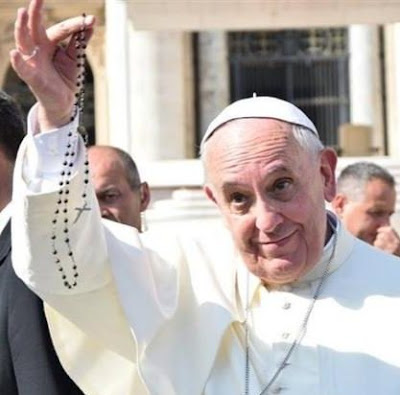
All Saints Day
Heaven is populated with uncanonized holy men and women known to God alone
Martyrs were so revered in the early Church that their places and dates of death were sanctified by the candles, prayers, and votive offerings of the faithful grateful for their witness. So many were the martyrs, though, that by the early fourth-century it became impossible to solemnize each individually on the Church’s crowded calendar. There thus arose, over centuries, and in different ways in different regions, the custom of commemorating the memory of all the holy ones on one specific day of the year. By the early eighth-century, a Feast of All Saints was celebrated in Rome on November 1. The Feast was extended to the entire Church in the next century.
The universal sanctoral calendar of the Catholic Church is like a saint’s All-Star team. Only the most talented make the cut. There are many more canonized saints besides those on the universal calendar. Some saints are commemorated only locally or regionally, others are historically obscure, and still others did not give a sufficiently universal witness to merit inclusion on the Church’s universal calendar. The Church defines a saint as a soul enjoying the Beatific Vision in heaven. So, besides the famous saints found on the universal calendar and the lesser-known saints not on that calendar, there are still many more souls in heaven not officially recognized as saints at all. These are the saints we celebrate in a particular way today.
The Solemnity of All Saints commemorates all those holy men, women, children, martyrs, confessors and unknown others who lived lives of such holiness that upon death they either entered directly into God’s presence in heaven or duly purified their soul of every imperfection in purgatory before then advancing into His presence. All-Star saints such as Saint Augustine and Saint Francis of Assisi stand shoulder to shoulder in heaven with forgotten grandmas, quiet uncles, and unknown martyrs. These unrecognized but holy souls did not convert entire tribes, found religious communities, or have their bones crushed by the jaws of lions in the arena. Maybe they just kept their mouth shut when they had just the right words to humiliate a family member. Magnanimity. Perhaps they cooked dinner night after night for their family out of a sense of duty, while they gazed out the kitchen window, dreaming of another life far away doing greater deeds. Humility. Or maybe they refused to cooperate with an immoral boss and lost their job, never to recover financially, their dreams ruined for a principled stance. Fortitude.
The dense population of heaven is unknown to us on earth, but not to God, the audience of One we should most desire to please. There are as many pathways to God as there are people, since God wants to make a project of each and every one of us. All the saints lived heroic lives in their own unique ways. Some were the steeple to the village, seen by all and inspiring others to greatness. But most saints had lower profiles. They were more like the squat stone blocks forming the church’s foundation, silently holding up the entire structure. They received little notice or credit despite buttressing the entire building. Without their support the church, and all of its flash, would collapse. Today we commemorate those silent and sturdy ones who, without cease and without complaint, buttressed the family, the marriage, the parish, the Church, the community, the faith. Among the communion of saints are some few illustrious citizens whose virtues sparkle on their special days. But today we honor, remember, and seek to imitate that broader population of heaven never raised to the public altars but who offered their lives in quiet ways to God. They received the Body of Christ and lived His teachings in an exemplary manner in season and out of season until all seasons converged and God called them back to Himself.
All holy men and women, so close to us yet still so far, gather our prayers to yourselves and intercede in heaven on our behalf. May our holy desires be accomplished through that chorus of prayers you constantly present to the Father surrounded by all His angels in heaven.








